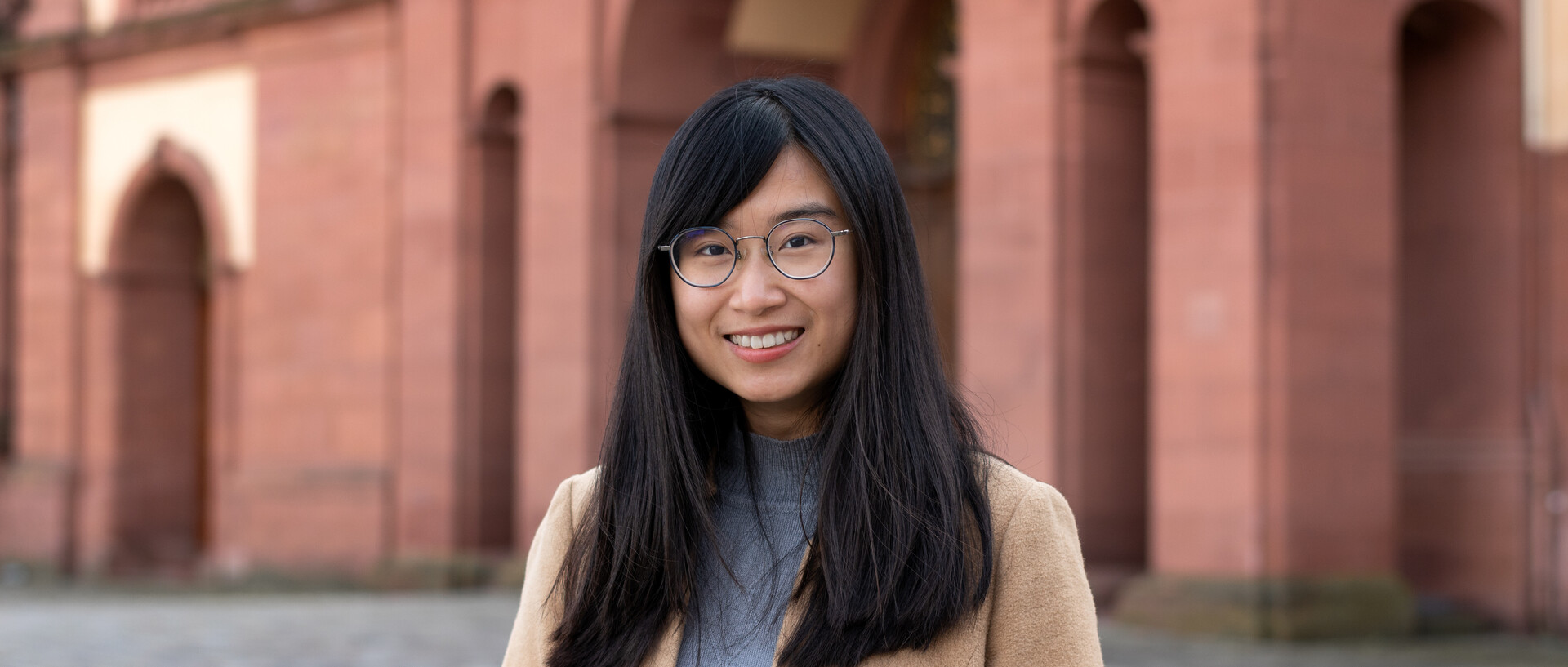“The University of Mannheim enabled me to pursue my goals”
26-year-old Yu-Han Mao is from Taoyuan, a big city in Taiwan. After finishing her bachelor's degree in Diplomacy in Taiwan, she is now a student of the master’s program in Political Science at the University of Mannheim. Find out in her myUniMA story which challenges she came across in her studies and what she values most about the university.
Why did you choose a master's degree at the University of Mannheim?
I completed my bachelor's degree in Diplomacy at the National Chengchi University in Taipei. It has the best International Relations program of all universities in Taiwan. But its focus is not really on practical skills, so I wanted to learn some during my master's program to increase my job opportunities. During my bachelor's I spent a year abroad in Würzburg in 2017. When I was there, I visited Mannheim as well. It was already dark when I saw the Schloss and I couldn’t really make it out. So I thought, I have to come back and see it properly. For me, it’s also essential that the School of Social Sciences in Mannheim focuses on quantitative methods and that we learn a lot about data analysis. Another reason for my decision to study in Mannheim was the university’s international renown for its social sciences. Mannheim takes first place in the national rankings.
How do you like it here so far?
I really like my study program. Our professors have introduced us to a variety of job perspectives, for example data science and data analysis. We learn to think outside the box and apply our skills to other disciplines, which is a great preparation for starting our career after our studies. I also really appreciate the support I get from the International Office.They helped me with questions about my work permit and gave me advice on how to improve my CV. Plus, the International Office grants a graduation scholarship, and I am honored to be one of its recipients.
In what way is studying in Taiwan different from studying in Germany?
I don’t remember ever having discussions with other students during my bachelor's degree. I only made this experience when I started studying at the University of Mannheim. Here, we have many opportunities to exchange ideas, especially in group assignments. As my master's program is quite international with students from different countries and cultures, we have very interesting and enriching discussions. We learn a lot about our fellow students but also about ourselves.
As an international student, is there anything you find particularly challenging?
The focus of my program is on European Politics and working with quantitative methods, which I had no experience with in the beginning and thus found it quite challenging. My learning curve was very steep! In general, the German language is quite a challenge for me. It’s difficult to navigate everyday life if you don’t speak it very well. I really hope to further improve my German because this way, I feel more connected with the culture. I love German, but unfortunately, I don’t speak it very much because my study program is taught in English and most of my fellow students are from abroad as well.
What do you miss most about home?
Most of all, I miss the food from home but sadly I’m not very good at cooking it myself. In Taiwan, most meals are served hot and made with more spices. But I love that it’s so easy to reach other European countries from here. For example, I recently visited Portugal with my friends. Traveling in Germany is also quite affordable if you start planning early on. That would be my advice for living in Germany; start planning early on and always have a backup plan.
Do you have other tips for international students?
I would definitely recommend learning German, even before coming to Germany. Also, they should think about what exactly they want to learn before coming here. I wanted to learn mathematics and methods, that’s why the University of Mannheim is the best option for me. Networking is also really important. You can just talk to presenters at conferences, for example. Such conversations inspired me to learn more about data science beyond my studies. That’s how I came to write my master's thesis with SAP’s team Data Science. Before that I had already had a job as a working student at SAP in Customer Experience, where I learned a lot about data analysis and digital content management. I’ve always wanted to work in a big, international company, so the job at SAP is a dream come true. So far, the University of Mannheim made it possible for me to reach my goals in many different areas.
Do you already have any ideas about what you want to do after completing your degree?
I would love to continue working at SAP because there are so many interesting developments happening in the industry and SAP is an international company. Ideally, I can improve my data science skills and use them to solve real problems in the social or political sciences or economics. My master's thesis is the first step in this direction, as I work on it as an interdisciplinary collaboration with SAP on a political topic in the area of data science. My thesis is more than a final paper to me. I see it as sort of a self-discovery journey because it proves that you have so many different career opportunities with a degree in political science from Mannheim.
Text: Rebecca Schanze / November 2021
